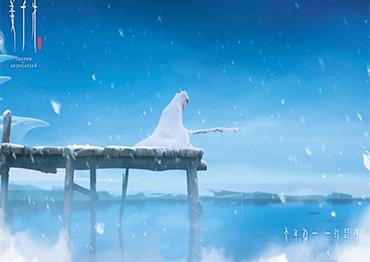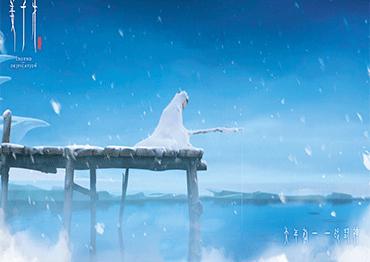Set during the fall of the Shang Dynasty (1600-1046 BC) and rise of the Zhou Dynasty (1046-256 BC), the novel Investiture of the Gods narrates the overthrow of the Shang’s last ruler, the tyrant Emperor Zhou (no relation to the Zhou Dynasty), by the Zhou founder Ji Fa. Seduced by his concubine Su Daji, who is possessed by the Nine-tailed Fox Demon, Emperor Zhou executed dissidents and slaughtered innocent people. The “Great War” between the Shang and Zhou followed, where hundreds of thousands of mortals, gods and demons chose sides in a fight to the death.
Jiang Ziya, the novel’s protagonist, is based on the historical politician and military commander who assisted Ji Fa in defeating the Shang and founding the Zhou Dynasty.
The film begins after the victory of the Great War that ended Emperor Zhou’s reign. Jiang Ziya is about to be deified as “leader of the gods,” but one final duty remains - execute the Nine-tailed Fox Demon. However, after he discovers that the demon possesses the innocent girl Xiao Jiu, i.e. Su Daji - to kill the demon means to sacrifice the girl’s life - Jiang hesitates and later decides to defy heaven’s will, which leads to his banishment and deprivation of the title.
The main theme of Legend of Deification revolves around conflicting views of righteousness. The gods insist that “a god must sacrifice a life to save all lives.” Jiang’s argument is: “If I can’t save a life, how can I save all lives?” Though facing banishment, he still insists that a true god should stand up for a single life, since it matters just as much.
Adapting Jiang Ziya’s character was one of the biggest challenges for the production team. In the novel Investiture of the Gods, Jiang Ziya is nearly 80 years old and known for his wisdom and calm nature, recalling Gandalf in J.R.R. Tolkien’s The Lord of the Rings series. The film portrays him as a middle-aged man who, compared with the flawless sage in the original novel, seems more vulnerable, lost and therefore relatable.
“I am a big fan of Investiture of the Gods. The original novel leaves so much room around the character Jiang Ziya for readers to explore and imagine,” Cheng Teng, one of the film’s directors, told NewsChina.
“Both Monkey King and Nezha are legendary heroes that attract people with their invincible powers, rebellious attitude and strong personality. Jiang Ziya, however, seems more ordinary. He’s a wise man whose struggle is more relatable to the lives of regular people,” Cheng said.
To make Jiang’s character stand out, the team took painstaking efforts to design his interactions with sidekicks, such as Four-Alike, a cute mythical elk-like creature, Xiao Jiu, the innocent girl whose life Jiang had saved, and Shen Gongbao, Jiang’s junior fellow apprentice.
“We tried to use these vivid characters to contrast Jiang Ziya’s cool reserve, which in turn makes him the most prominent character in the story,” Cheng told NewsChina.
Animators also focused on Jiang’s subtle expressions. “We tried to highlight the nuances of Jiang’s expressions such as the tiny movements of his crows-feet. Jiang is a reserved man who doesn’t show much emotion. In many East Asian films, such as Hayao Miyazaki’s Parco Rosso, such cool, older characters usually show their emotions through minute and subtle changes in expression,” Cheng added.
The team went through 123 versions of Jiang Ziya.
“We had one very loyal to the original novel and also did a very dramatic version with little likeness to the original character. We also had a version of him as a flirty loser. But the final version we presentedin the film is the best balance of our ideas,” Cheng said.

 Old Version
Old Version
